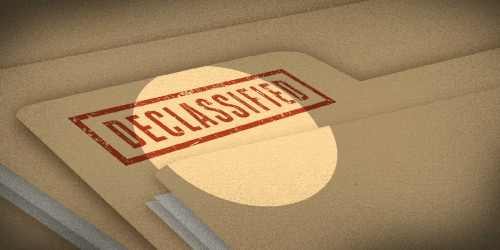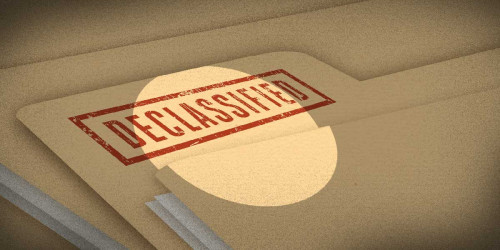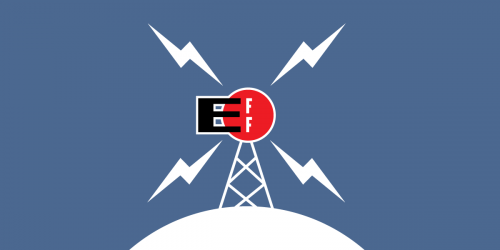Table of Contents
Essential Information on NSLs
- What is an NSL?
- What’s so bad about NSLs?
- Who can issue an NSL?
- Does a judge play any role in the NSL process?
- How many NSLs have been issued?
- What kind of information can be obtained with NSLs?
- What kind of customer records?
- To whom can NSLs be issued?
- Can the FBI obtain content—like e-mails or the content of phone calls—with an NSL?
A national security letter (NSL) is a law enforcement investigative tool similar to a subpoena and is most commonly issued by the FBI. NSLs are used to obtain information from companies as part of national security-related investigations. They allow the FBI, and in limited circumstances other federal agencies, to demand that companies turn over data about their customers’ use of services such as banking, telephone, and Internet usage records.
By using NSLs, the FBI can directly order companies to turn over information about their customers and then gag the companies from telling anyone that they did so. Because the process is secret, and because even the companies can’t tell if specific NSLs violate the law, the process is ripe for abuse.
The laws that created NSL authority allow a variety of agencies to issue them. However, the most commonly used type of NSL can be issued directly by the FBI Director, an Assistant Director, and also by all FBI Special Agents in Charge, who are commanding officers stationed across the country at FBI field offices.
Does a judge play any role in the NSL process?
A judge does not have to approve the NSL or an accompanying gag order. Under the statutes, the only occasion in which a judge is required to review an NSL is if a recipient files a legal challenge.
How many NSLs have been issued?
Over 300,000 NSLs have been issued in the past 10 years alone. The most NSLs issued in a single year was 56,507 in 2004. In 2013, President Obama’s Intelligence Review Group reported; that the government continues to issue an average of nearly 60 NSLs every day. By contrast, in 2000 (the year before the passage of the USA PATRIOT Act that loosened NSL standards), 8,500 NSLs were issued.
What kind of information can be obtained with NSLs?
The most commonly issued NSLs permit the FBI to target telephone and Internet companies, financial institutions, and credit agencies to obtain customer records “relevant to an authorized investigation to protect against international terrorism or clandestine intelligence activities.”
What kind of customer records?
The NSL statute allows the FBI to obtain a customer’s name, address, length of service, communications (phone and Internet) records, and banking and other financial and credit information.
- Credit reporting agencies
- Telecommunications providers
- Financial institutions
- Travel agencies
Can the FBI obtain content—like e-mails or the content of phone calls—with an NSL?
Not legally. While each type of NSL allows the FBI to obtain a different type of information, that information is limited to records—such as “subscriber information and toll billing records information” from telephone companies.
Statutes and Legal Arguments about NSLs
- What statutes grant NSL authority?
- Does an NSL require a court order?
- What’s the legal standard for issuing an NSL?
- How many times have NSLs been challenged in court?
- Are NSLs constitutional?
- How do NSL gag orders violate the First Amendment?
- How does the statutory standard of review of NSLs violate separation of powers?
- How does the compelled production of records pursuant to NSLs violate the First Amendment?
What statutes grant NSL authority?
NSLs are currently authorized by four federal statutes: the Electronic Communications Privacy Act (18 U.S.C. § 2709); the National Security Act (50 U.S.C. § 3162), the Right to Financial Privacy Act (12 U.S.C. § 3414), and the Fair Credit Reporting Act (15 U.S.C. §§ 1681u, v.), with significant amendments added by the USA PATRIOT Act (Section 505, P.L. 107-56, 115 Stat. 365-66 (2001)) , and the USA Patriot Act Reauthorization of 2006 (P.L. 109-178, 120 Stat. 278 (2006)).
Does an NSL require a court order?
No. Although there are procedures for review after they are issued, NSLs can be issued by the FBI without any judicial oversight.
What’s the legal standard for issuing an NSL?
Under the most commonly used NSL statute, the FBI must certify that the records sought are “relevant to an authorized investigation to protect against international terrorism or clandestine intelligence activities.” While the statute does prohibit investigations “conducted solely on the basis of activities protected by the first amendment to the Constitution of the United States,” this provides little actual protection as there is no judicial oversight of NSLs.
How many times have NSLs been challenged in court?
Seven that we know of, including In re National Security Letter 2013 (13-1165), In re National Security Letter 2013 (13-80089), In re National Security Letter (11-2173), In re: Google’s Request to Set Aside Legal Process, Doe v. Mukasey, Internet Archive et al v. Mukasey, and Library Connection v. Gonzales.
- The government argues that NSLs are constitutional. EFF does not agree, and currently courts are split on the issue.
- In 2008, the Second Circuit Court of Appeals ruled that NSLs could be constitutionally applied if the FBI voluntarily applied certain procedural protections. In 2013, in response to a challenge brought by EFF on behalf of an unnamed telephone company, the District Court for the Northern District of California disagreed, holding that the NSL statute was unconstitutional and that the FBI could not issue further NSLs nor enforce any existing gag orders.
- The 2013 ruling invalidating the NSL statute is currently on appeal to the Ninth Circuit Court of Appeals. Ultimately, the issue could be decided by the U.S. Supreme Court.
How do NSL gag orders violate the First Amendment?
The Second Circuit Court of Appeals and the District Court for the Northern District of California have both ruled that NSL gag orders amount to unconstitutional and content-based prior restraint on speech and that the statute fails to include procedural protections required by the Supreme Court to protect First Amendment rights.
How does the statutory standard of review of NSLs violate separation of powers?
- The statute that authorizes judicial review of NSLs is an unconstitutional restriction on the authority of the judicial branch to engage in judicial review. Instead of being able to strike down NSLs for any reason that a court may determine is unlawful, under the statute courts may only overturn gag orders if the court finds “that there is no reason to believe that disclosure may endanger national security of the United States, interfere with a criminal counterterrorism, or counterintelligence investigation, interfere with diplomatic relations, or endanger the life or physical safety of any person.”
- This standard is far lower than that required by the First Amendment and operates to further discourage NSL recipients from challenging NSLs. In the rare circumstance in which NSL gags are challenged in court, the NSL statute makes such challenges unusually difficult.
- Both the Second Circuit Court of Appeals and the District Court for the Northern District of California have struck down this provision as unconstitutional.
How does the compelled production of records pursuant to NSLs violate the First Amendment?
As EFF has argued in its NSL litigation, the NSL statute’s authority to compel the production of customer records violates the First Amendment because it permits the FBI to obtain, without prior judicial review, information potentially protected by the First Amendment. This may includes identity information where individuals are lawfully seeking to communicate or associate anonymously. Freedom of association is one of the particular rights protected under the First Amendment. No court has yet ruled on this claim.
Receiving an NSL
- Can I talk to my friends and family if I receive an NSL?
- Can I talk to a lawyer if I receive an NSL?
- Can I challenge an NSL in court?
- What should I do if I get an NSL?
Can I talk to my friends and family if I receive an NSL?
No. NSLs include gag orders that prevent the recipient from discussing the NSL with the media or even with friends and family.
Can I talk to a lawyer if I receive an NSL?
Yes, you can talk to an attorney for legal advice if you receive an NSL, but the lawyer is then bound by the gag order just as you are.
Can I challenge an NSL in court?
Yes. Since the statute was amended in 2006, an NSL recipient can petition a federal district court to modify or set aside both requests for records and the gag orders that accompany such requests.
What should I do if I get an NSL?
The best thing to do if you receive an NSL is to contact an attorney right away in order to evaluate your options.
Fixing NSLs
What are the proposals to fix NSLs?
- A handful of proposals have been made by Congress and a Presidential commission to reform NSL authority. No Congressional proposal has thus far addressed all of the NSL flaws cited above.
- The USA FREEDOM Act, would tighten some standards for issuing an NSL but it would still permit the issuance of NSLs and gags without court approval. Unfortunately, the changes would still allow the FBI to issue NSLs without judicial oversight.
- President Obama’s Intelligence Review Group has effectively called for abolishing NSLs altogether, writing that it could not identify “a principled reason why NSLs should be issued by FBI officials” when other similar tools must be first approved by a court.
- President Obama stated in a speech in January 2014 that he “directed the attorney general to amend how we use national security letters so this secrecy will not be indefinite, so that it will terminate within a fixed time unless the government demonstrates a real need for further secrecy. We will also enable communications providers to make public more information than ever before about the orders that they have received to provide data to the government.” How he intends for this to happen is unclear.
EFF is leading the way in the legal fight against NSLs, but these lawsuits take a tremendous amount of time, energy, and financial resources. The only way non-profits such as EFF can afford to pursue them are through the kind and generous donations of individuals such as you. If you believe in what we are fighting for, please consider donating to support our efforts.











